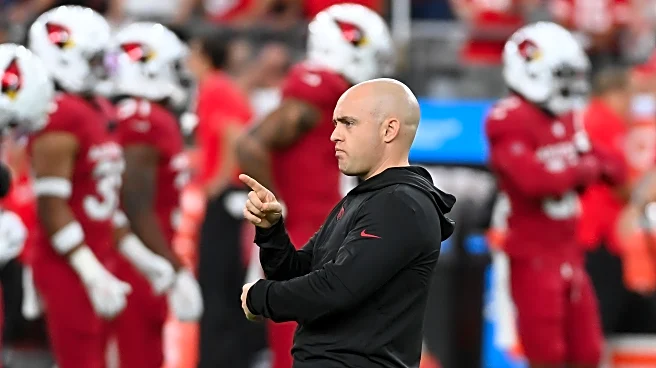What's Happening?
A federal judge in Rhode Island has mandated the Trump administration to secure funding to fully support SNAP benefits for November. This decision comes after cities and nonprofits challenged the administration's initial plan to cover only 65% of the maximum
benefit. The administration had previously announced it would not pay benefits for November due to the federal shutdown. The ruling by U.S. District Judge John J. McConnell Jr. highlights the administration's failure to consider the practical consequences of partial funding, which would delay payments and harm individuals reliant on these benefits. The government plans to use $4.65 billion in emergency funding to comply with the court's order.
Why It's Important?
The judge's ruling is significant as it ensures that millions of Americans who depend on SNAP benefits will receive full support during a time of economic uncertainty caused by the federal shutdown. This decision underscores the critical role of judicial intervention in safeguarding public welfare against administrative decisions that may overlook the needs of vulnerable populations. The ruling also highlights the ongoing challenges faced by the Trump administration in managing federal resources during a shutdown, impacting public policy and social services.
What's Next?
The Trump administration is expected to allocate the necessary funds to comply with the court's order, potentially drawing from emergency reserves. This decision may prompt further scrutiny of the administration's handling of social welfare programs during the shutdown. Stakeholders, including political leaders and advocacy groups, may push for more comprehensive solutions to prevent similar funding issues in the future. The administration's response and subsequent actions will be closely monitored by affected communities and policymakers.
Beyond the Headlines
This development raises broader questions about the ethical responsibilities of government agencies in ensuring the welfare of citizens during fiscal crises. The reliance on emergency funding highlights the precarious nature of social safety nets and the need for robust contingency planning. The case may set a precedent for future legal challenges against administrative decisions that impact public welfare, emphasizing the judiciary's role in upholding social justice.














